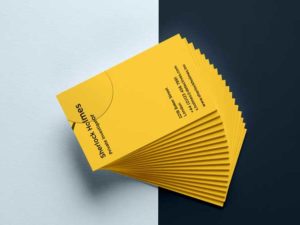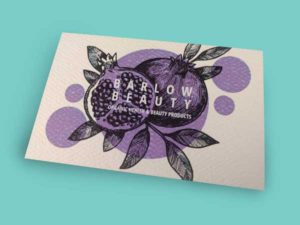Inspiration for your Business Card Designs I don’t know what...
Read MoreInspiration for your Business Card Designs
I don’t know what I want until I see it!
Is that an experience you recognise?
Whether that is finding a delicious meal at a restaurant, seeing a gorgeous car drive past or noticing your dream home on a walk with your dog. We all need that bit of inspiration to help us visualise the things that we like.
That is why we have compiled together a range of business card designs to get your creative ideas flowing. This page is designed to be used for business card inspiration.
Have a browse through and let us know in the comments which one is your favourite!
1. Use Gradients
Gradients can be used to create character and interest in a design. Added to that, they can be used to draw the eye toward different areas of the card. This helps to shift the focus from one part of the design to another.
In this particular example, the lighter area of the gradient draws the eye toward the person’s name, whilst the gradient then shifts our focus toward the address and contact details.
It is helpful to make your gradient subtle so that it does not overwhelm the card. The intention is not to show off your gradient, but rather to highlight the areas of your card which are most important.
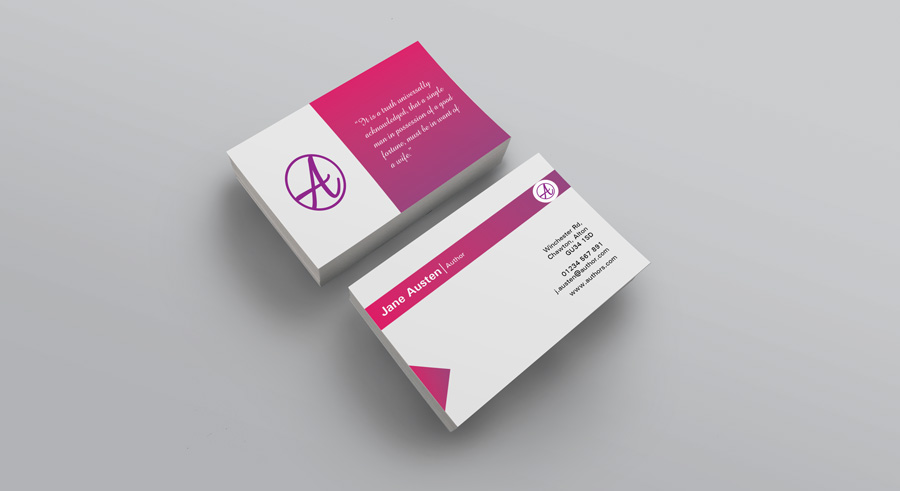
2. Use Patterns
Patterns are a fantastic way to theme your card, showing off your personality or your company values. Whether you blanket the whole card with the pattern or fill a shape (like the ‘S’), a pattern is extremely unique!
Use strong contrasting colours when writing over a pattern so that your text is not overwhelmed.
Patterns can be made using all sorts of shapes including squares, triangles, rectangles, circles, hexagons or octagons.
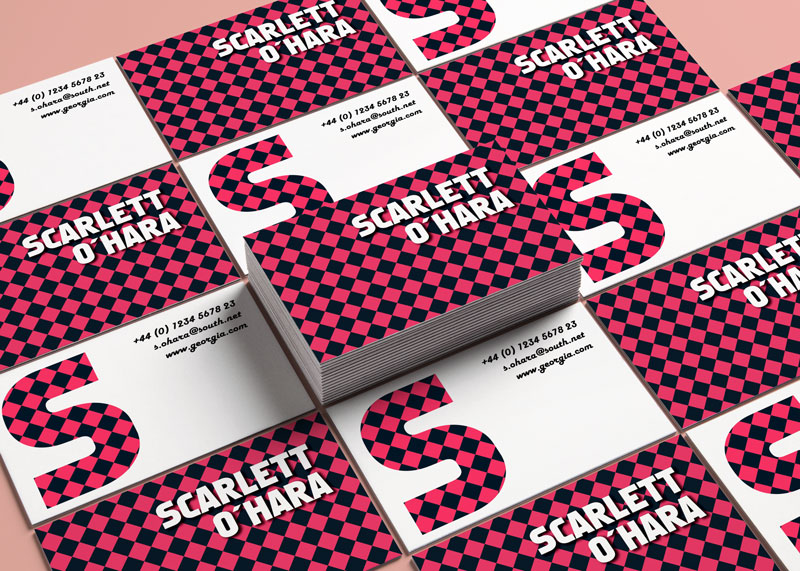
3. Use Boxes
Boxes are extremely effective at creating a structure to your design. Simple to implement, a box looks extremely stylish and and leads the eye around the card.
This particular design overlaps the person’s name with the green box which creates a connection between his title, the logo and his contact details. The blank areas of this card are also important as they make the card feel modern, clean and stylish. Additionally, the job title has been rotated by 90 degrees to add interest.
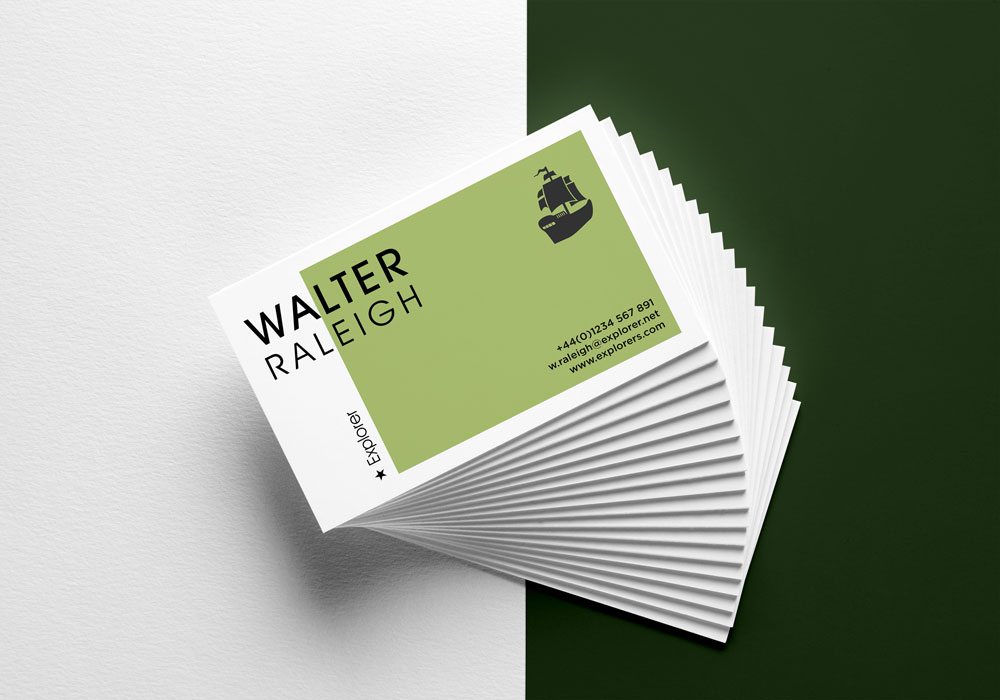
4. Use a Splash of Colour
Strong doses of colour give a design a wow factor and help it to stand out from the crowd. You can achieve this affect by paint splashes, colour explosions or really vivid photos.
In this example, we have zoomed in on a splatter of paint. The white text and shadow help the text to stand out against this backdrop.
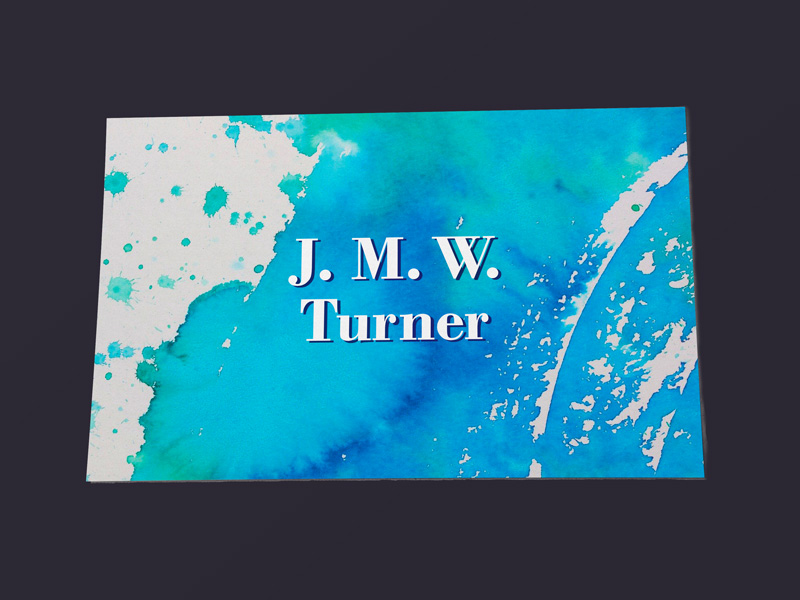
5. Use a Single Colour
One idea that always looks classy is to have a common colour throughout the design. Use this colour to highlight the important areas using circles, lines and rectangles. It is amazing how this simple trick will work right across the spectrum of colours. Pick any colour and keep it the same throughout.
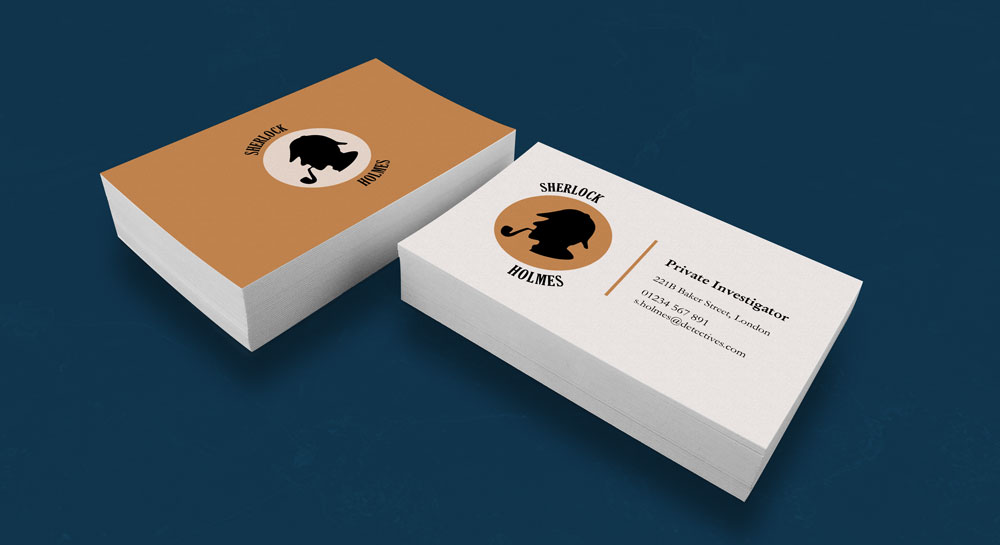
6. Use Interesting Shapes
Try using uncommon shapes in your designs like hexagons and octagons. This works because the rarity of these shapes help a design to feel fresh and different.
The design below uses a hexagon which creates unique angles. We can then experiment with these angles to add other design techniques we have mentioned elsewhere. For example, this card has implemented contrasting patterns.
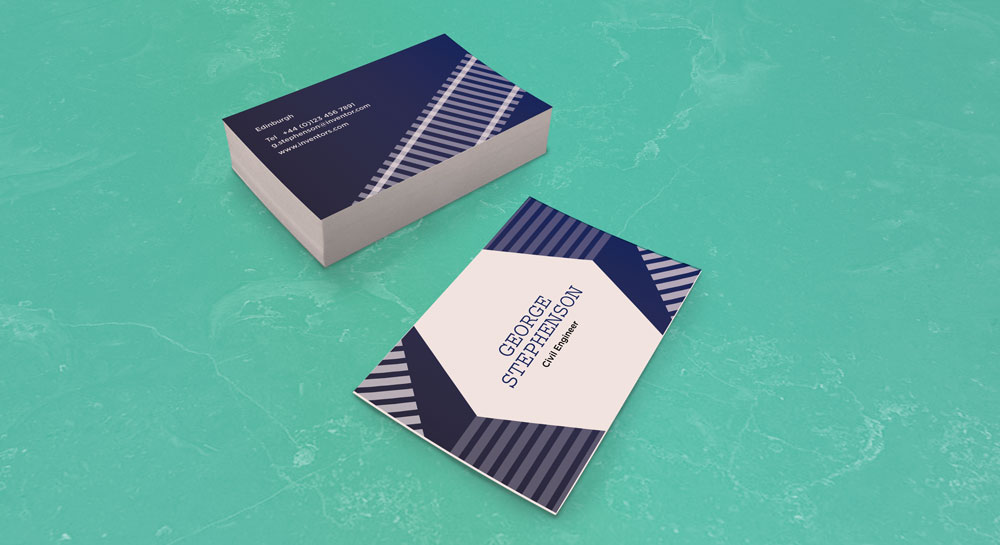
7. Use Banners
Banners are a fun way to highlight important information. You can use large banners across the whole card or small banners to pick out specific information.
The design below incorporates a number of banners at different angles to pick out important details. Use a darker shade of a colour to create the effect that a banner is folding behind another.
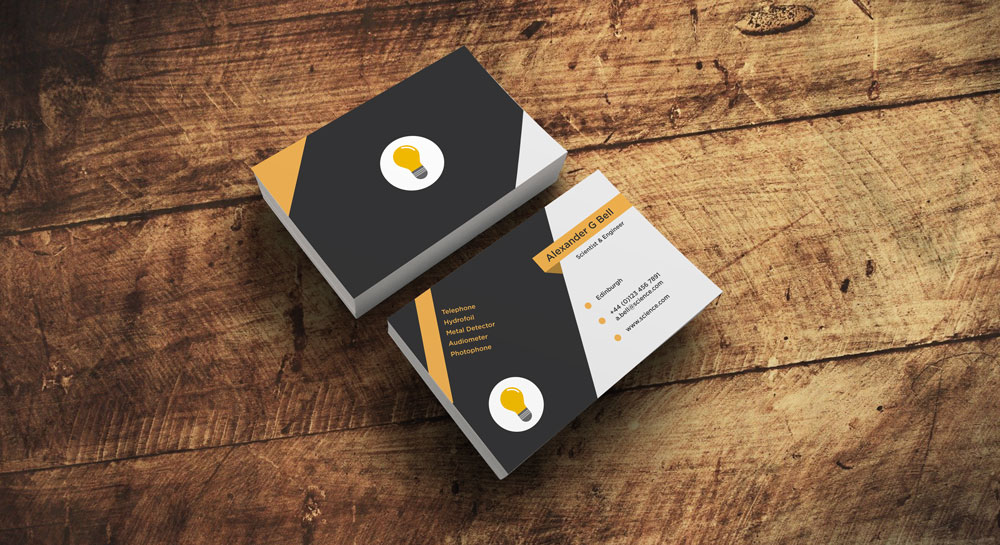
8. Use Coloured Card
Coloured card can be extremely effective if used correctly. You should avoid overcluttering your design by keeping it simple and elegant. This allows the material to be the star.
If you use coloured card it is important you also use a strong, contrasting colour. Additionally, avoid using images as they will be tinted by the card colour.
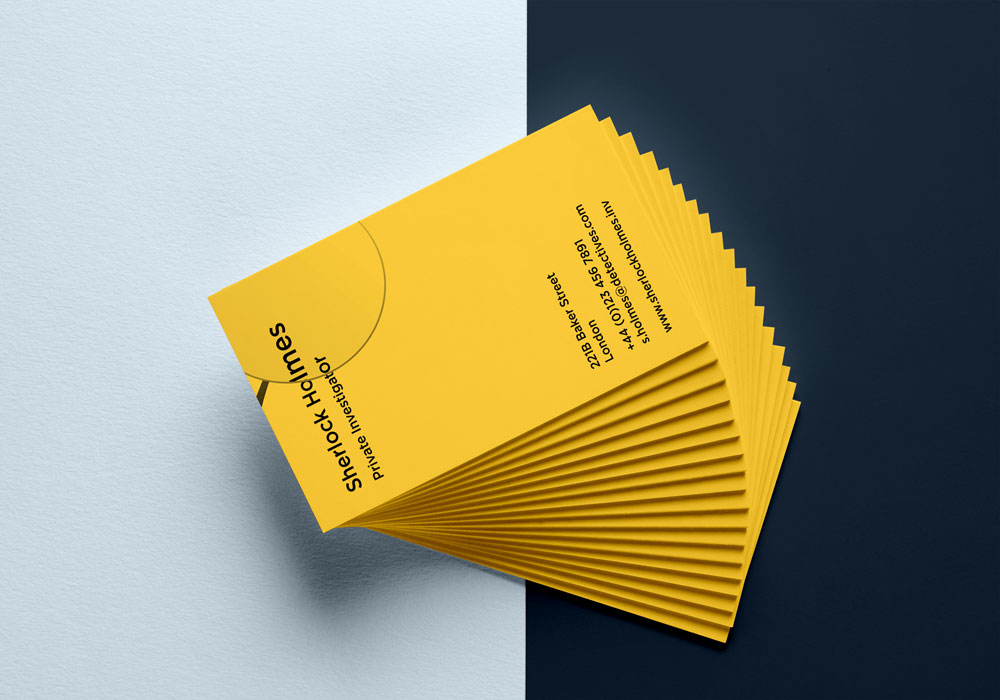
9. Use Curves and Shadows
Curves are a fantastic way to soften your design. If you want to give your design a less serious, less commercial look then curves are a good way of doing this.
Added to this, shadows can help add ‘depth’ to your design so it almost looks 3D. Combine shadows with gradients to give these an even more realistic effect.
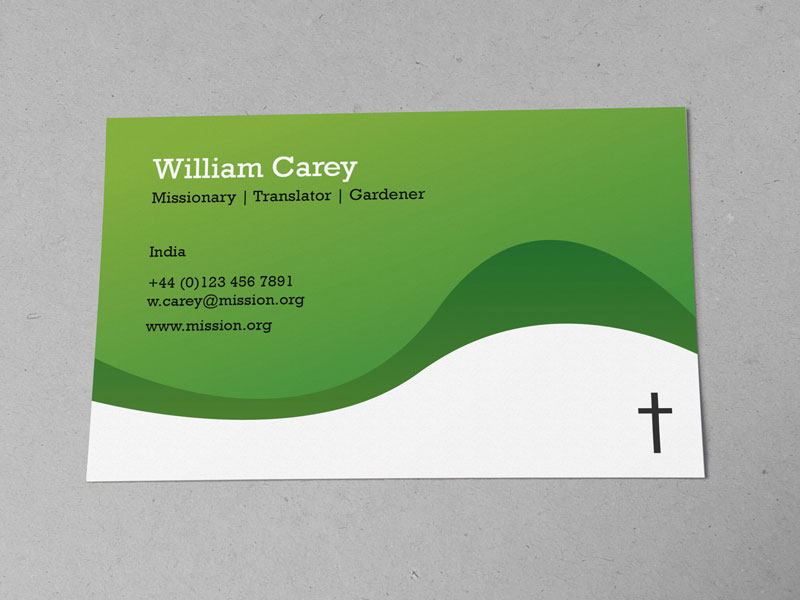
10. Use Lines
Lines are so simple and easy to create, many designers avoid them. However, if used correctly they can be extremely interesting.
This design uses a random pattern created with hand drawn lines. This gives the effect of the contours of a map. Be creative with random lines, uniform lines or a combination of the two.
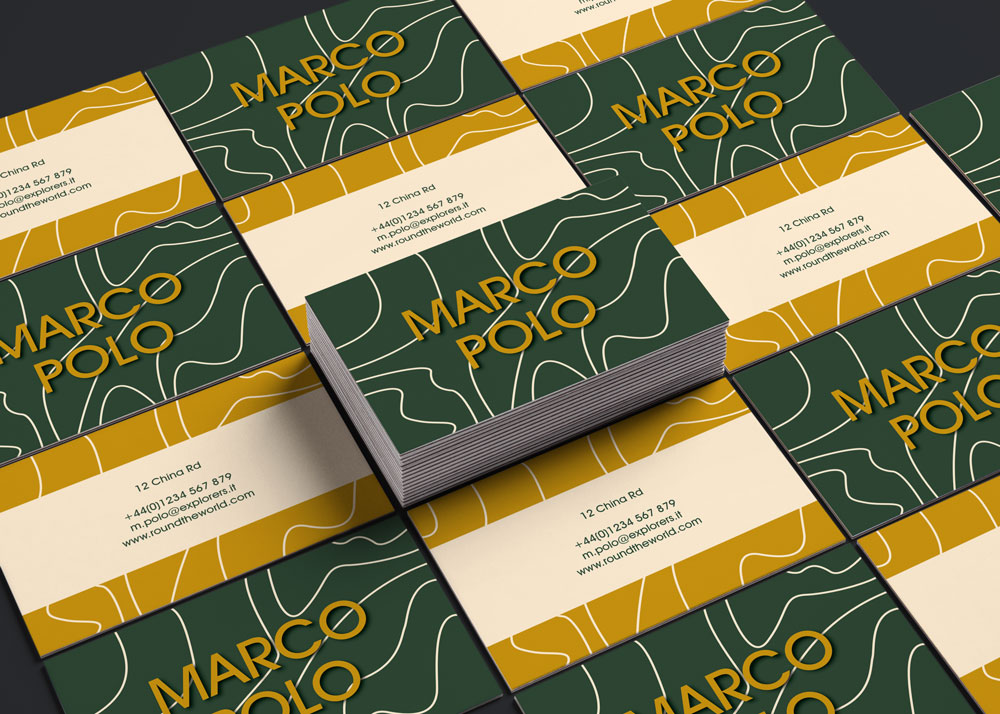
11. Use Contrast
Contrast is extremely important in highlighting areas you want to catch the eye. Have a look at your colour palette and make sure you are using colours that stand out from each other.
People want to gather important information quickly. Contrast helps them pick these details out.
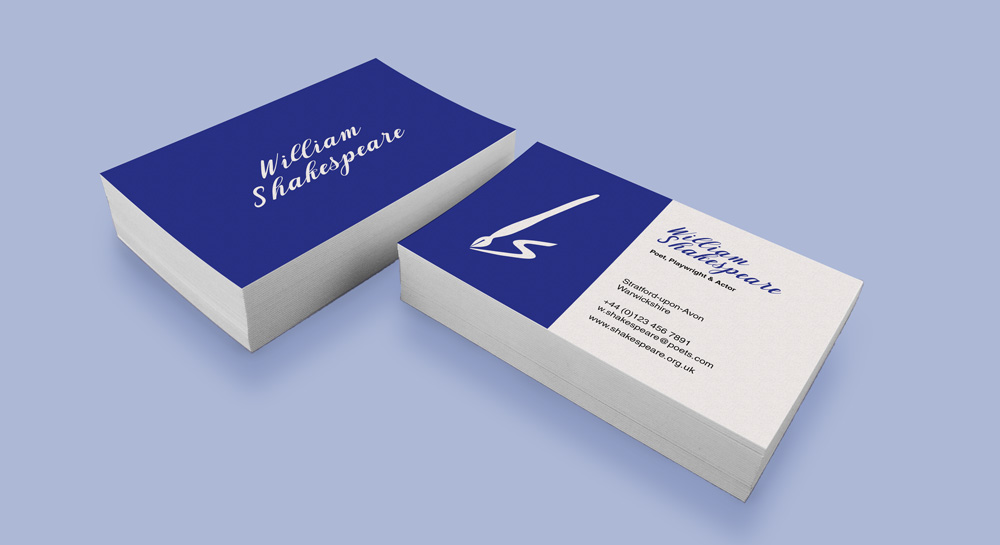
12. Use Simplicity
Sometimes the most simple designs are the best designs. Try including a logo, company name and details. Often this is all you need, when combined with the right colour scheme.
The design below makes use of white space and simple lines to break up the card. Although simple, this is extremely effective.
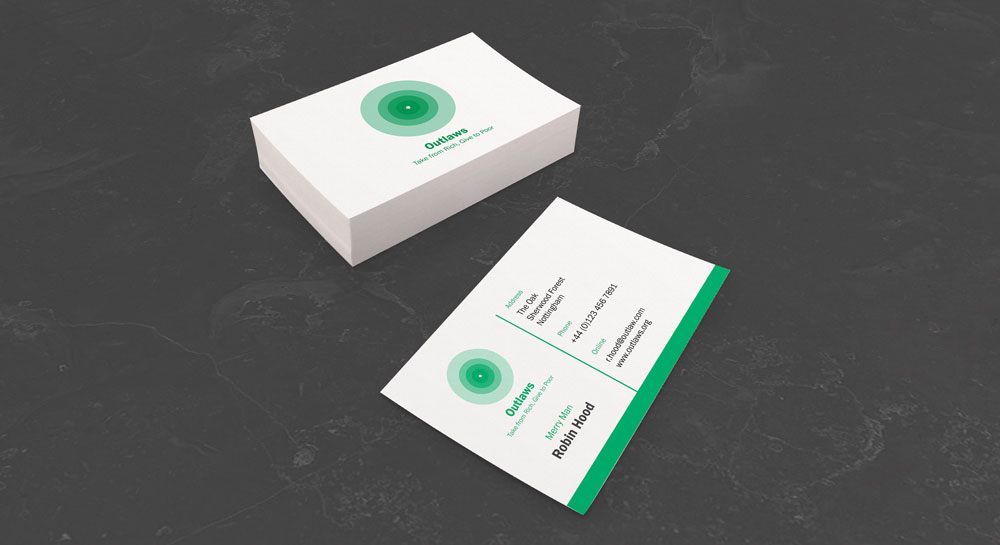
13. Use Two Colours
Another effective method is to focus on two colours that compliment one another.
If you are looking for a palette of colours that will work well together, try this website: https://coolors.co/
In this design, we have combined black and blue. The blue stands out the most in this example, so we use it to draw the eye to the most important information. Don’t be tempted to fill in that white space!
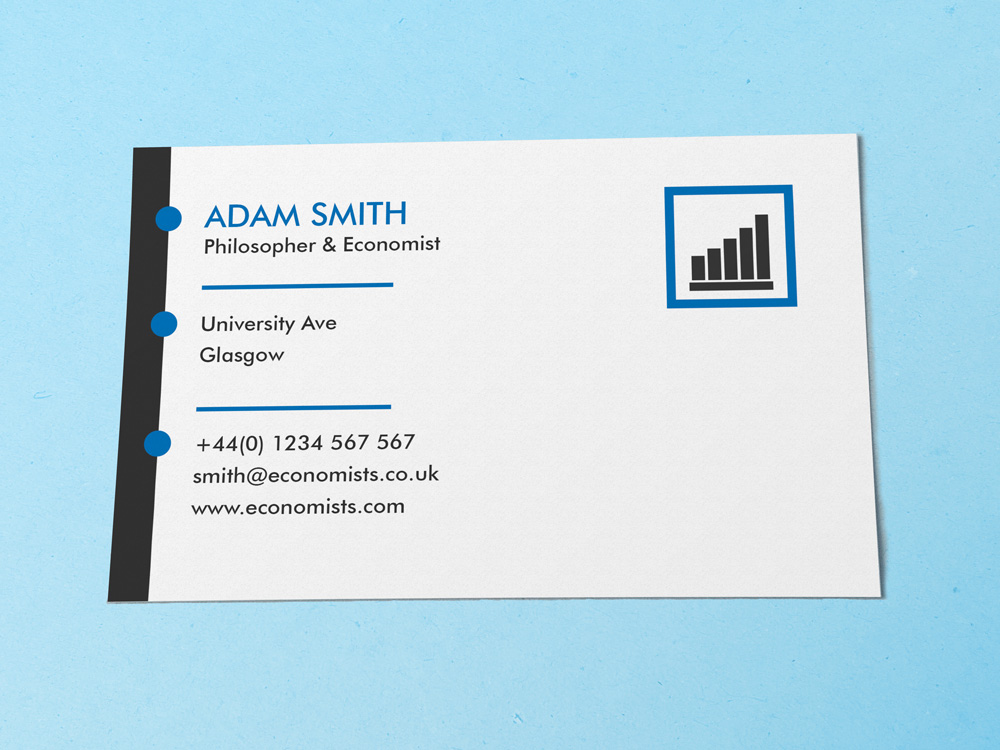
8 Easy Ways to make your Business Cards Unique
It always feels rewarding when you give somebody your business...
Read More